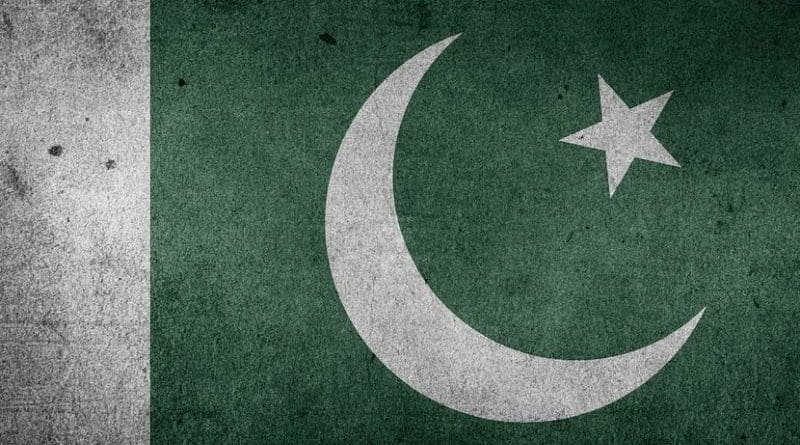Elitism In Pakistan And Its Fallout On The Public – OpEd
The gun attack on Imran Khan has pushed the whole country deeper into chaos and anarchy. Though the assassin has been arrested but as usual, the motive behind the shooting will remains shrouded in mystery. The former prime minister’s quest for nominating setting PM including interior minister and a senior Premier security agency official in FIR for plotting the attack, is in hast and without logic or proof, speaks the volume of political turmoil in the country and depicts the apolitical behaviour of our top political leadership.
We as nation are habitual in experiencing such chaotic situation in our chequered political history since beginning. The fault is not in our stars but actually is in our rotten political social and economic system imposed by a group of the people with apolitical, undemocratic, aristocratic background working with colonial mindset. They own the country and people are treated as their subjects rather than a citizen as enshrined in the constitution. Exploitation and corruption in all shape is continued unabated with connivance of state apparatus. Laws are framed in a way convenient to them and protect their interests. State resources and machinery are used and abused for their personal gains. Majority of the population is kept in the abject poverty and illiteracy through exploitative policies and political engineering, to serve their interests.
Now the question is, we the public will ever achieve the ‘true independence’ from the tyranny of minority elite rulings that Imran Khan hankers after, or will we remain trapped within the illusory independence of a caged bird? The black poetess Maya Angelou once wrote: “The caged bird sings with a fearful trill/of things unknown/ but longed for still/ and his tune is heard/ on the distant hill/ for the caged bird/ sings of freedom.”
The only freedom our political leaders yearn for, is not for the general public, from economic dependence, nor social and political servitude. It is freedom from another elite class headed by his opponents, to regain power.
Imran khan too has been playing this game and has learned from experience that empty slogans are the perfect lollipop for the unaware masses. His original tabdeeli/ change has been replaced by haqeeqi azadi/ true freedom. Now that he is recuperating from a botched assassination attempt, he might like to read the autobiography of that earlier true freedom fighters, the late Dr Martin Luther King of USA or Nelson Mandela of South Africa or at least Baget Sing of the sub-continent.
The irony is that the myopia of our political leaders reveals that they are not worried about the rehabilitation of the flood affected, nor soaring inflation, nor the population explosion, nor the tottering education sector or need for a national security and unity, irradiation of poverty and illiteracy. Their main concern is, who will be the next COAS, as if he is the guarantor of their continuity.
Mufta Ismail former finance minister has rightly said that Pakistan shouldn’t be called the Islamic Republic but rather the One Per Cent Republic. Where Opportunities, power and wealth here are limited to the top one per cent of the people in the country and the rest of the population are sons of the lesser Gods.
The ruling elites have turned everything into a quagmire , As Acemoglu and Robinson have well said, “those who control the political power determine economic institutions”. So, if political power, wealth, and opportunities are strictly limited to an unchanging and small extractive elite class in the country, they will set up economic institutions which benefit them, not the public in large. Exactly the same is happening with the people in our country.
Nowadays, the most prominent threat is the balance of payment crisis, with Pakistan facing the risk of sovereign default on external debt repayments. Though the International Monetary Fund’s bailout has helped stabilise the economy and avert the immediate risk of default. Our Forex reserves held by the State Bank of Pakistan (SBP) currently stand at $7.6bn, but in practical terms, they are closer to zero; $2.3bn of it was credited by China, $3bn deposited by Saudi Arabia and $1.2bn came from the IMF. The rest is also based on borrowings from commercial banks. Pakistan’s external debt is more than $130bn, and its debt-to-GDP ratio is around 75pc.
Further, the country’s integration is badly threatened, as is manifested by the fractures existing along multiple lines. Robert Darnton is historian, has describes the prevailing situation, according to him there is “a climate change in politics” in which “bigotry, bullying, mendacity, vulgarity … have damaged the atmosphere of public life . The same things are going on in the country. Social alienation, surging ethnic and racial divides, sectarianism, social stratification, divisive and polarised politics, religio-political groups with radical agendas, resurgence of extremist insurgent groups, gender disparity and ideological contest, poverty and illiteracy have put the country’s cohesion at stake.
Pakistan is a diverse society with a multi-cultural, multi-ethnic, multi-lingual and multi-religious societal landscape. We need national integrity, indigenous social harmony, political stability, inclusive economic prosperity, depoliticised and demilitarised institutions and faith free modern education coupled with clean governance. The nation expects that next military chief will not be interventionist as promised and serve the country with in constitutional boundaries. The ruling elites too must change their minds in line with the constitution and democratic norms.
Sher Khan Bazai is retired from civil service as Secretary Education, Balochistan. He can be reached at [email protected]

